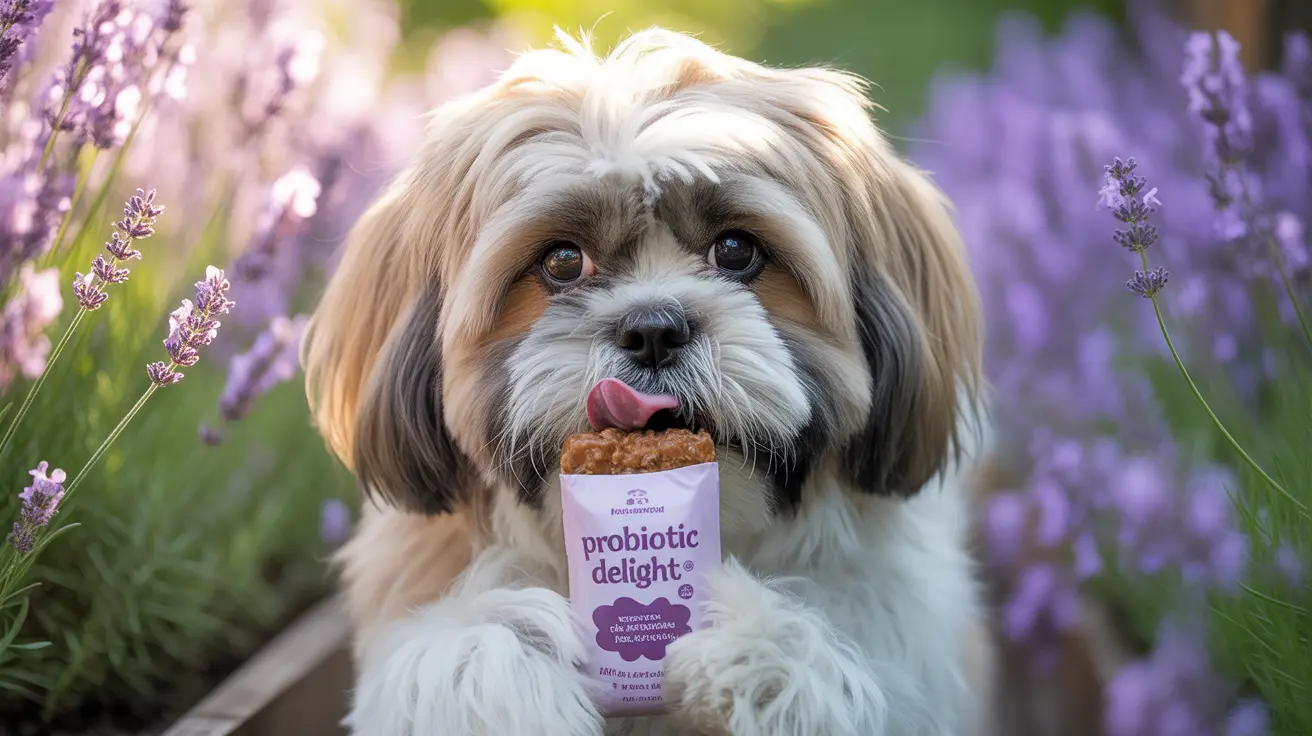As pet owners increasingly focus on their dogs' overall health and wellness, probiotics for dogs have emerged as a crucial supplement for maintaining optimal canine health. These beneficial microorganisms play a vital role in supporting digestive health, boosting immunity, and even influencing behavioral patterns in our four-legged companions.
Understanding how probiotics work and their extensive benefits can help you make informed decisions about incorporating them into your dog's health routine. Let's explore the science behind canine probiotics and discover why veterinarians increasingly recommend them for both prevention and treatment of various health conditions.
Understanding Canine Probiotics and Their Function
Probiotics for dogs are living microorganisms that contribute to a balanced gut microbiome - the complex ecosystem of bacteria residing in your dog's digestive tract. These beneficial bacteria make up approximately 70% of your dog's immune system, highlighting their crucial role in overall health.
Common beneficial strains include Bifidobacterium longum, Lactobacillus plantarum, and Pediococcus acidilactici, each serving specific functions in maintaining gut health. These probiotics work by creating an optimal environment in the intestines through pH regulation and the production of beneficial compounds.
The Science-Backed Benefits of Dog Probiotics
Research has demonstrated numerous health benefits of probiotic supplementation in dogs:
Digestive Health Support
- Enhanced nutrient absorption
- Reduced instances of diarrhea
- Improved food digestion
- Prevention of gastrointestinal upset
Immune System Enhancement
- Strengthened gut barrier function
- Increased protection against pathogens
- Reduced inflammation
- Better recovery from infections
Behavioral Improvements
Recent studies have shown that certain probiotic strains, particularly Bifidobacterium longum, can significantly impact canine behavior by reducing stress-related actions and improving emotional regulation.
When to Give Your Dog Probiotics
Probiotics can be particularly beneficial during specific situations:
- During and after antibiotic treatment
- Following episodes of acute diarrhea
- When dealing with inflammatory bowel conditions
- During periods of stress or environmental changes
- As part of a preventive health routine
Choosing the Right Probiotic Supplement
Not all probiotics are created equal, and research shows that dog-specific formulations are more effective than human probiotics. When selecting a supplement, look for products specifically designed for canine use that contain well-researched bacterial strains.
Administration and Expected Results
Consistency is key when administering probiotics to your dog. While some effects may be noticed within a few days, establishing a healthy gut microbiome typically takes several weeks of regular supplementation. Always follow the manufacturer's dosing guidelines and consult with your veterinarian about the optimal administration schedule.
Frequently Asked Questions
How do I choose the right probiotics for my dog?
Look for dog-specific formulations containing scientifically-proven strains like Bifidobacterium longum and Lactobacillus plantarum. Ensure the product has a guaranteed viable bacteria count and proper storage instructions.
Can I use human probiotics for my dog, or are dog-specific ones better?
Dog-specific probiotics are strongly recommended as they contain strains that are more effective in canine digestive systems. Human probiotics may not provide the same benefits and could potentially cause digestive upset.
What are the benefits of giving probiotics to dogs with digestive issues?
Probiotics can help reduce diarrhea duration, improve nutrient absorption, reduce inflammation, and restore healthy gut bacteria balance. They're particularly effective for dogs with chronic digestive problems or those recovering from illness.
How long does it typically take for probiotics to start working in dogs?
While some dogs may show improvement in digestive symptoms within 24-48 hours, full benefits typically develop over 4-8 weeks of consistent use. The timeline varies depending on the specific condition being addressed.
Are there any potential side effects of probiotics in dogs that I should be aware of?
Side effects are generally mild and temporary, potentially including initial digestive changes like minor gas or loose stools. These typically resolve as the dog's system adjusts to the supplement.
Conclusion
Probiotics for dogs represent a powerful tool in maintaining and improving canine health. From supporting digestive function to enhancing immunity and even influencing behavior, these beneficial bacteria offer wide-ranging benefits for our furry friends. By choosing the right supplement and maintaining consistent administration, you can help your dog achieve optimal health through probiotic supplementation.






